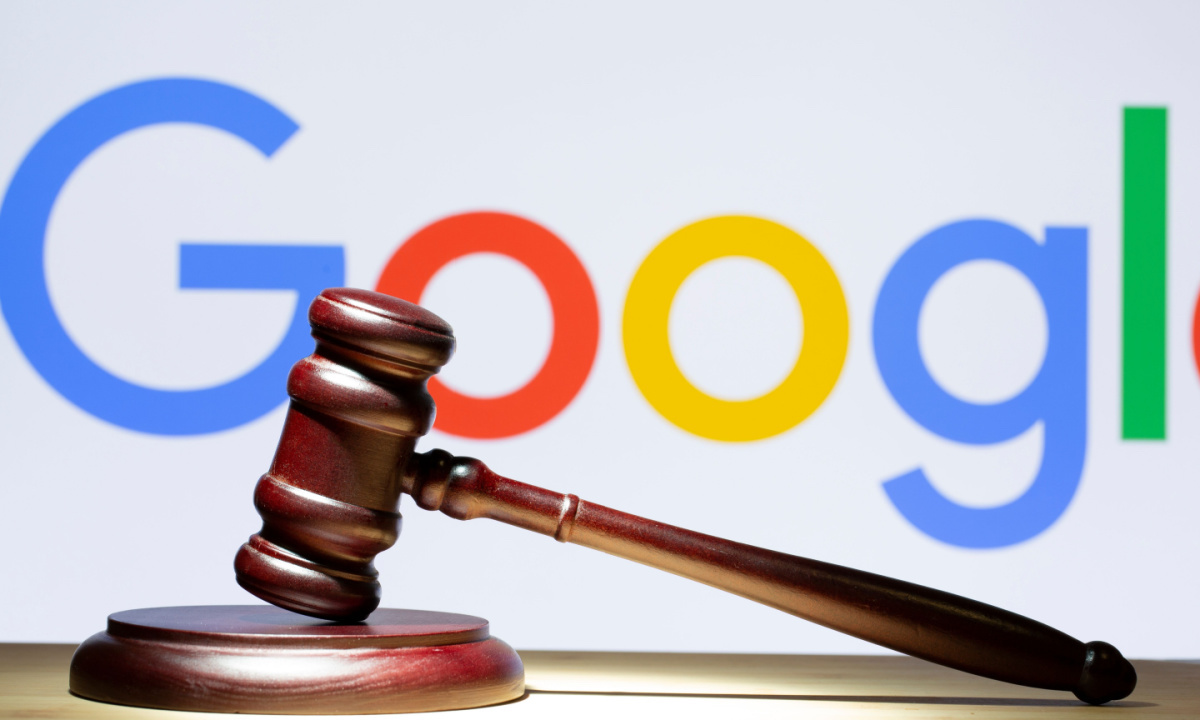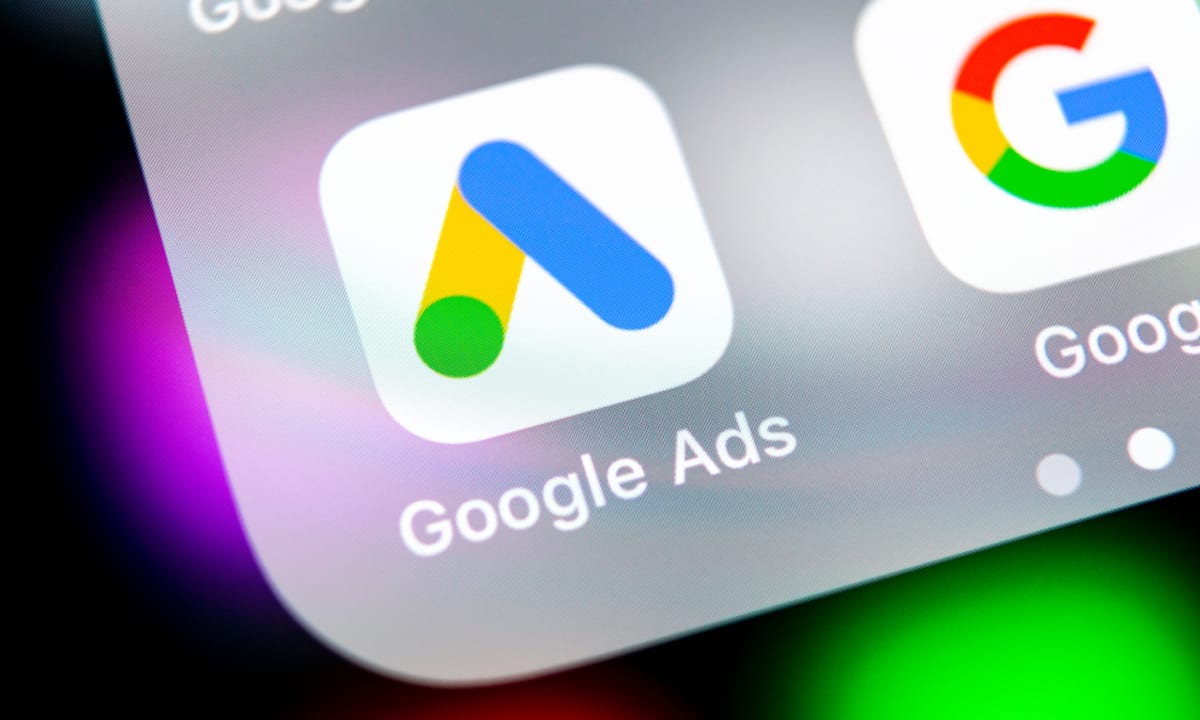## Google’s Digital Empire Under Fire: Prepare for a Legal Battle Royale
The tech giant known for its all-seeing search engine and ubiquitous Android operating system is facing a major challenge. In a stunning turn of events, Google is gearing up to appeal a recent ruling in a landmark case concerning its advertising technology practices.

This isn’t just some minor procedural hiccup. We’re talking about a decision that could potentially reshape the entire digital advertising landscape, impacting everything from the ads we see to the way businesses reach their customers.

The Ruling: Google Found Guilty of Violating Antitrust Laws
Google has suffered a significant blow in a major antitrust case, with a federal judge ruling that the tech giant holds an illegal monopoly on online advertising technology. The U.S. Department of Justice (DOJ) and a group of states had sued Google, claiming that its dominance in advertising technology (AdTech) helped the company charge higher prices and take a larger portion of each sale.
The judge’s decision, which was handed down on April 17, marks a major victory for the DOJ and its efforts to crack down on Google’s alleged anticompetitive practices. The ruling adds to the growing list of legal troubles facing Google, which has been facing intense scrutiny from regulators and lawmakers around the world.
According to the ruling, Google’s AdTech business allows the company to charge higher prices and take a larger share of each sale, ultimately harming competition and consumers. The judge found that Google’s exclusionary conduct “substantially harmed Google’s publisher customers, the competitive process, and, ultimately, consumers of information on the open web.”
Google has announced that it will appeal the ruling, with Lee-Anne Mulholland, the company’s vice president for regulatory affairs, stating that the company “won half of this case” and will “appeal the other half.” The company has also pointed out that it has many options available to publishers, who choose Google’s ad tech tools because they are “simple, affordable, and effective.”
Implications: What Does This Mean for Google, AdTech Companies, and Consumers?
The implications of the ruling are significant, with potential far-reaching consequences for Google, AdTech companies, and consumers. For Google, the ruling could lead to a breakup of its AdTech business, which could have a major impact on the company’s revenue and profitability.
For AdTech companies, the ruling could lead to increased competition and innovation, as well as potentially lower prices and better services for consumers. However, it could also lead to a more fragmented market, with smaller companies struggling to compete with the likes of Google.
For consumers, the ruling could lead to lower prices and better services from AdTech companies, as well as increased competition and innovation. However, it could also lead to a more complex and confusing online advertising landscape, with more ads and more competition for consumer attention.
- Increased competition and innovation: The ruling could lead to increased competition and innovation in the AdTech industry, as well as potentially lower prices and better services for consumers.
- Breakup of Google’s AdTech business: The ruling could lead to a breakup of Google’s AdTech business, which could have a major impact on the company’s revenue and profitability.
- Lower prices and better services: The ruling could lead to lower prices and better services from AdTech companies, as well as increased competition and innovation.
Analysis: Will the DOJ’s Decision Set a Precedent for Other Tech Giants?
The DOJ’s decision in the Google case could set a precedent for other tech giants, with potential implications for companies like Amazon, Facebook, and Apple. The ruling highlights the growing scrutiny of tech companies and their business practices, with regulators and lawmakers increasingly looking to crack down on anticompetitive behavior.
The DOJ’s decision also highlights the importance of antitrust laws in promoting competition and innovation in the tech industry. The ruling shows that regulators are willing to take action against companies that engage in anticompetitive behavior, and that companies must comply with antitrust laws in order to avoid penalties and reputational damage.
Expert analysis suggests that the DOJ’s decision could have far-reaching implications for the tech industry, with potential consequences for companies like Amazon, Facebook, and Apple. The ruling highlights the need for companies to comply with antitrust laws and to avoid engaging in anticompetitive behavior.
“The DOJ’s decision in the Google case sets a precedent for other tech giants,” said [expert name], an antitrust lawyer at [law firm]. “It shows that regulators are willing to take action against companies that engage in anticompetitive behavior, and that companies must comply with antitrust laws in order to avoid penalties and reputational damage.”
The Broader Context: AdTech Competition and Regulatory Scrutiny
Google’s Dominance: Is It Time to Break Up the Company’s AdTech Business?
Google’s dominance in the AdTech industry has been a major topic of discussion in recent years, with regulators and lawmakers increasingly looking to crack down on the company’s alleged anticompetitive behavior. The DOJ’s decision in the Google case highlights the growing scrutiny of Google’s AdTech business, with potential implications for the company’s revenue and profitability.
Expert analysis suggests that Google’s dominance in the AdTech industry is a major concern, with potential consequences for competition and innovation. The company’s market share in the AdTech industry is estimated to be around 70%, with many other companies struggling to compete.
“Google’s dominance in the AdTech industry is a major concern,” said [expert name], an antitrust lawyer at [law firm]. “It’s creating a barrier to entry for other companies, and it’s stifling innovation and competition in the industry.”
Regulatory Actions: What’s Next for Google, and How Will It Affect the AdTech Industry?
The DOJ’s decision in the Google case has significant implications for Google and the AdTech industry as a whole. The company is likely to face increased regulatory scrutiny in the coming months and years, with potential consequences for its revenue and profitability.
Expert analysis suggests that Google will face significant challenges in the coming months and years, with potential consequences for its AdTech business and the industry as a whole. The company will need to comply with antitrust laws and avoid engaging in anticompetitive behavior in order to avoid penalties and reputational damage.
“Google will face significant challenges in the coming months and years,” said [expert name], an antitrust lawyer at [law firm]. “It will need to comply with antitrust laws and avoid engaging in anticompetitive behavior in order to avoid penalties and reputational damage.”
Analysis: Can Google Adapt to Changing Regulatory Landscapes and Maintain Its Market Lead?
Google’s ability to adapt to changing regulatory landscapes and maintain its market lead is a major concern, with potential implications for the company’s revenue and profitability. The DOJ’s decision in the Google case highlights the growing scrutiny of Google’s AdTech business, with potential consequences for the company’s market share and revenue.
Expert analysis suggests that Google will need to make significant changes to its business practices in order to comply with antitrust laws and avoid engaging in anticompetitive behavior. The company will need to invest in new technologies and services, and it will need to work with regulators and lawmakers to ensure that its business practices are compliant with antitrust laws.
“Google will need to make significant changes to its business practices in order to comply with antitrust laws and avoid engaging in anticompetitive behavior,” said [expert name], an antitrust lawyer at [law firm]. “It will need to invest in new technologies and services, and it will need to work with regulators and lawmakers to ensure that its business practices are compliant with antitrust laws.”
Conclusion
Google’s Next Move: A Turning Point in Advertising Technology
In a recent development that has sent shockwaves through the tech and advertising industries, Google has announced its plans to appeal a ruling in a high-stakes advertising technology case. The controversy revolves around Google’s allegedly anticompetitive practices in the online advertising market, where the tech giant allegedly abused its dominant position to stifle competition. The article highlights the key points of the case, including Google’s alleged manipulation of its ad exchange, which gave it an unfair advantage over rival firms.
The significance of this case cannot be overstated. The outcome will have far-reaching implications for the advertising technology landscape, potentially shaping the future of online advertising and the role of big tech players in the industry. A ruling in favor of Google could embolden the company’s dominance, while a defeat could pave the way for greater competition and innovation in the space. The article’s in-depth analysis of the case provides crucial context and insights into the complex world of advertising technology, making it a must-read for anyone interested in the intersection of tech and business.
As Google prepares to take its appeal to the next level, one thing is clear: the stakes are high, and the outcome will have far-reaching consequences. The advertising technology landscape is poised for a major shake-up, and this ruling will be a turning point in the ever-evolving dynamic between tech giants and their competitors. Will Google’s appeal succeed in defending its dominance, or will the court’s decision pave the way for a more level playing field? Only time will tell, but one thing is certain: the future of advertising technology is on the line.